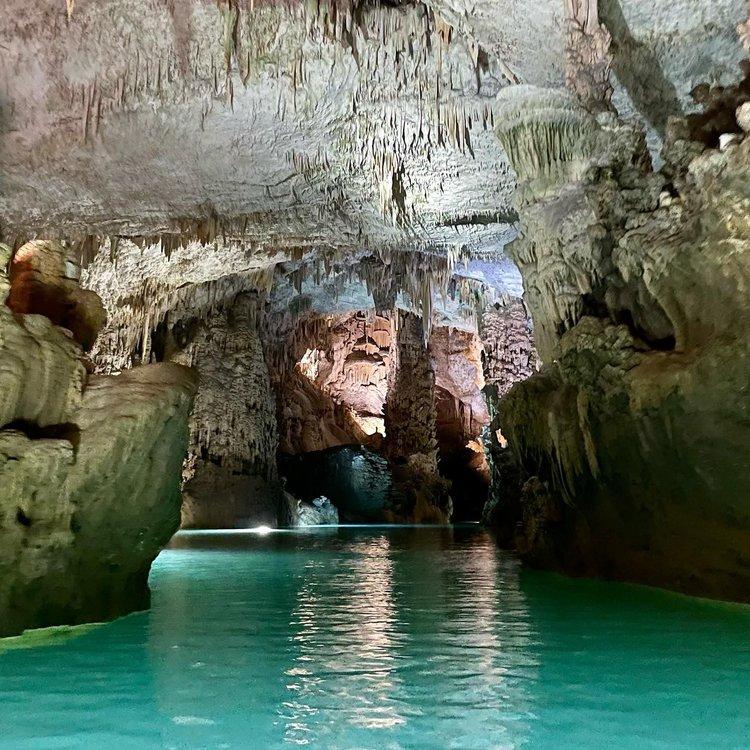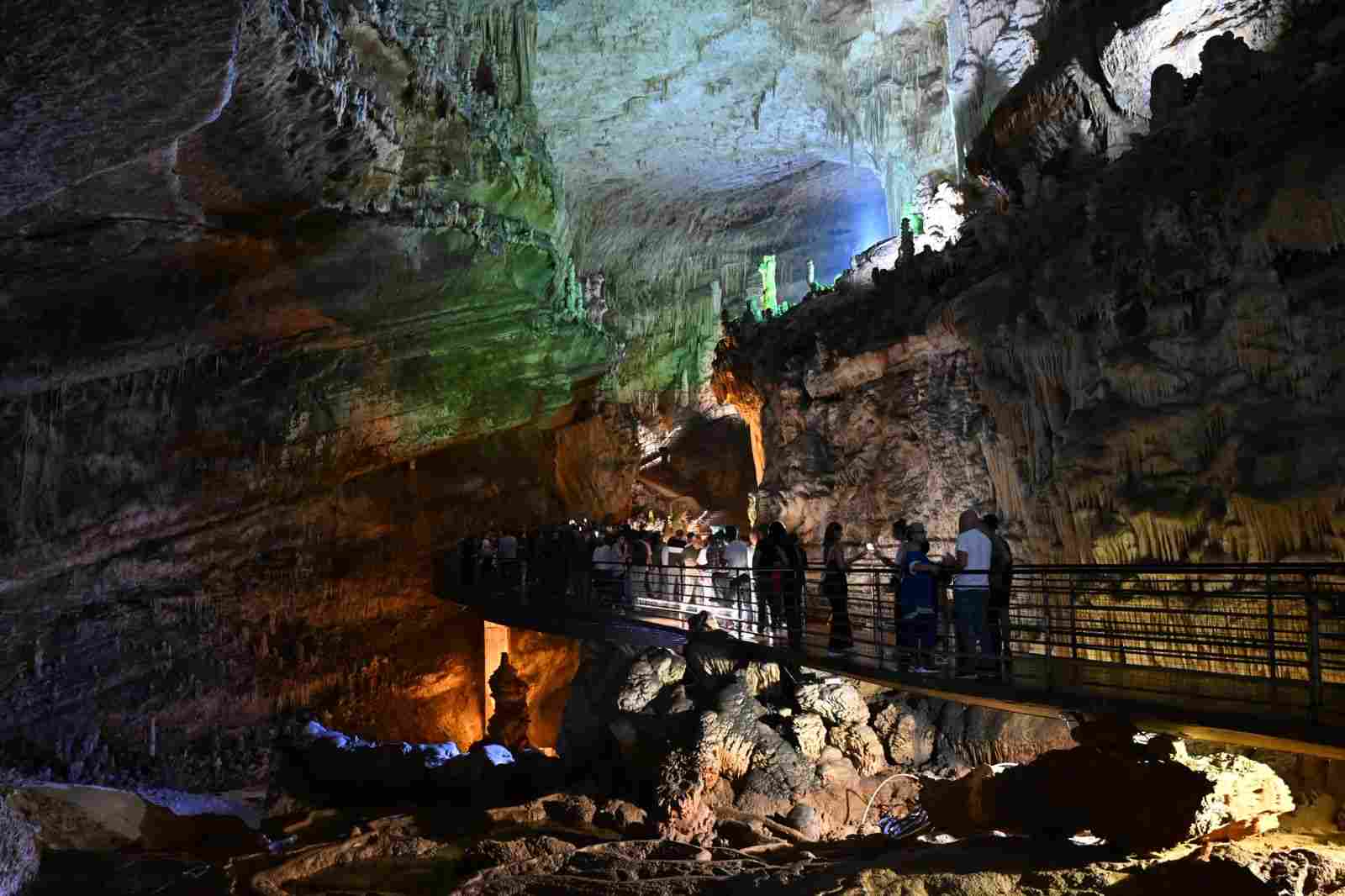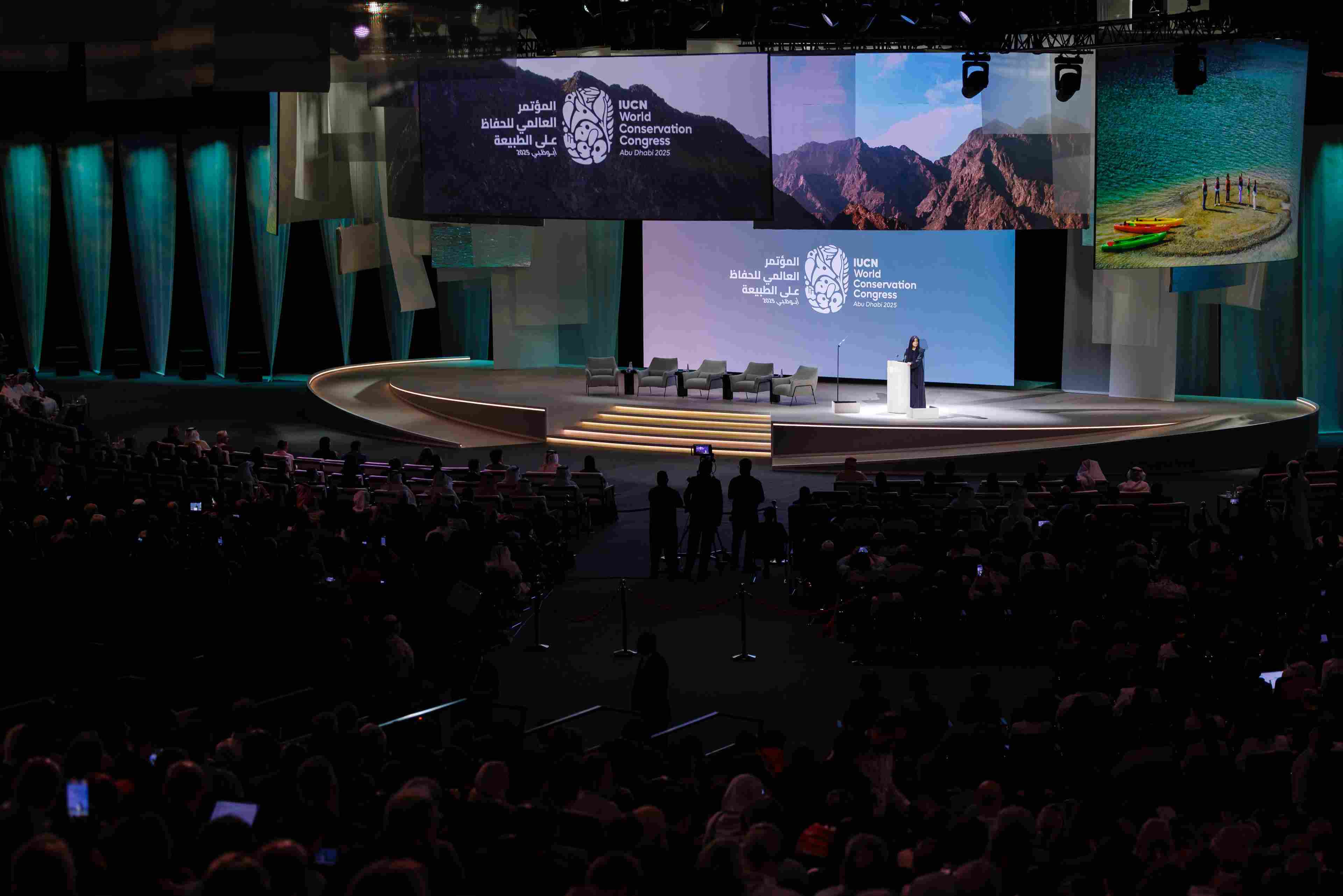
LEBANON (Enmaeya Features) - November 4, 2025
A recent pre-wedding held inside the Jeita Grotto, Lebanon’s world-famous natural wonder, has sparked nationwide outrage and a wave of concern among environmentalists and scientists. The event, complete with loud music, lighting, and a large crowd, violated conservation rules designed to protect one of the most delicate natural environments on Earth.
A National and Scientific Treasure
Jeita Grotto is not just a tourist attraction; it is a living geological archive. Formed over millions of years in limestone, it holds unique stalactites and stalagmites that record changes in climate, earthquakes, and environmental conditions, a natural history book carved in stone. The cave’s environment remains stable thanks to its constant temperature and humidity, which allow these formations to slowly grow and preserve their pristine state.
Jeita’s ecosystem is part of a karst system, landscapes shaped by the erosion of limestone through water. Karst systems rank among the most fragile ecosystems on the planet, yet their preservation is critical. They provide drinking water, supplying roughly a 25 % of the world’s freshwater. Beyond that, they play a vital role in regulating the climate by naturally absorbing carbon dioxide from the atmosphere.
These systems also hold irreplaceable scientific value, with delicate formations that take centuries to form, offering a unique window into the planet’s geological and environmental history.
Why a Celebration Inside the Cave is so Damaging
A high-energy celebration inside a cave might seem harmless, but it’s far from it. The delicate ecosystem inside a cave has evolved over millions of years, and even a short disturbance can cause permanent damage.
Heat and Humidity: Why Every Visitor Matters
Every person inside the cave releases heat, roughly as much as a small light bulb. When hundreds gather, the cave’s temperature can spike dramatically. This sudden “thermal shock” disrupts the humidity, which normally hovers near 100%. As the air warms and humidity drops, stalactites and stalagmites begin to dry out and lose their natural glossy sheen. In some cases, their growth may stop forever.
Carbon Dioxide: Invisible Damage
Human breath releases carbon dioxide (CO₂), and in confined cave spaces, the levels can rise quickly. When CO₂ mixes with water, it forms carbonic acid, which slowly dissolves the minerals, calcite, that build the cave’s iconic formations. This means that instead of growing, these natural wonders start to erode, erasing parts of Lebanon’s geological heritage.
Noise and Vibration: The Hidden Toll of Loud Music
Loud music, dancing, and vibrations from amplified sound may feel harmless to humans, but they wreak havoc on the cave’s tiny residents. Bats and micro-fauna rely on silence and stable air. Studies show that loud sounds can reduce bat activity by up to 50%, forcing them to flee deeper into the cave, or abandon it entirely.
Biological Contamination: The Unseen Threat
Visitors unknowingly introduce dust, hair, lint, and spores, which serve as food for foreign organisms. Combined with artificial lighting, this encourages the growth of Lampen flora, greenish algae and bacteria that permanently stain the cave walls and formations. Once these organisms take hold, they’re nearly impossible to remove without causing further damage.
A Breach of Duty
According to an official statement from the Ministry of Tourism on November 3, 2025, the Municipality of Jeita organized the event without written approval from the ministry and without consulting the Speleological Club of Lebanon, which oversees the cave’s scientific integrity.
The Ministry confirmed it will send a formal warning to the municipality for breaching contractual and ethical obligations. It emphasized that no event of this nature can take place without prior written consent and environmental review, as per national regulations and the Prime Minister’s Circular No. 36/2025, which prohibits the use of public or national heritage sites without official authorization.
While the Ministry recognized the municipality’s role in reopening and managing the site after a period of closure, it reaffirmed that Jeita Grotto’s preservation takes absolute priority over any commercial or celebratory use.
Restoring Protection and Accountability
Experts urge the government to adopt international best practices to protect Lebanon’s fragile caves. These practices include limiting visitor numbers so the cave’s temperature and carbon dioxide levels can return to normal between visits.
Any proposed activity inside the cave should undergo expert review to ensure it won’t damage delicate formations or disturb the ecosystem.
Most importantly, a permanent ban on all high-energy events, including loud music, large gatherings, and non-scientific lighting, is essential to safeguard this natural wonder for future generations.
The Jeita incident underscores that the cave itself is the "golden goose," and the temporary commercial exploitation must never override the long-term, irreversible preservation of its unique scientific and environmental heritage






